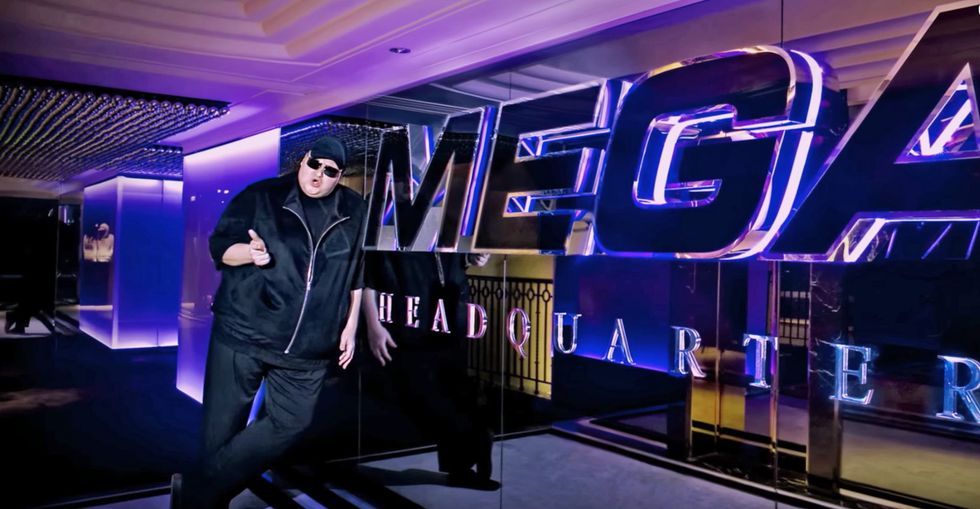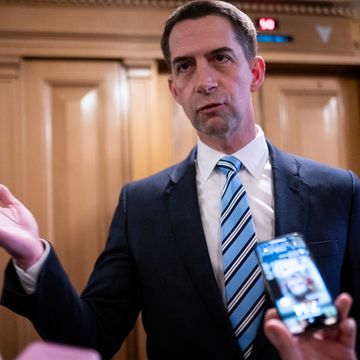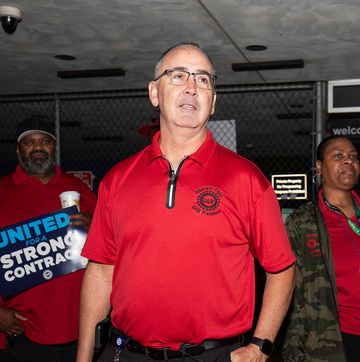AUSTIN, TEXAS—Is it a crime to cover a cybersecurity documentary on unsecured public wi-fi? Asking for a friend. Kim Dotcom: Caught in the Web had its world premiere at SXSW on Monday inside the Vimeo Theatre at the Austin Convention Center, home to one of many open networks that thousands of journalists and Silicon Valley bros are willfully using all week. It's easy. It's semi-reliable. It's faster than some more official alternative, even if it's guaranteed to put your data and livelihood at risk. But still, you use it, because everyone else is using it. What's the harm?
That's the same mentality behind tens of millions who eagerly use file sharing services as part of their daily online life. Some of the bigger companies have come and gone, like Napster and MegaUpload, Napster's supersize cousin with its supersize founder, Kim Dotcom. That's not a dig at his weight; Kim's entire existence is XXL. He once lived in a sprawling mega-mansion in New Zealand with its own name, regal personal logo, and the word MEGA plastered all over the property. (It was carefully mowed into a pristine section of sloping green grass like the batter's box during MLB playoffs.) Kim's downfall was equally obtuse. He was "captured" during a pre-dawn special ops-style raid on his compound in 2012, when authorities had finally had enough of his alleged mass-scale copyright infringement and wanted him in cuffs. Helicopters descended over the rolling hills like Chinooks swooping into Abbottabad. Automatic weapons were drawn. Kim's beautiful wife and young children were rounded up while Kim allegedly locked himself in a panic room deep in the house clutching a sawed-off shotgun.
At least, that was the story. The raid was the Hollywood climax to bring down this James Bond super villain multimillionaire hacking wizard, a first stab at justice for the MPAA and other content creators, namely Americans, whose work was being illegally uploaded and downloaded on Kim's worldwide service. Piracy is a crime at the individual level, but what does it become at the macro-level? Something akin to cyber-terrorism? Of course, MegaUpload didn't actually "sell" Season Two of Mad Men in its entirety on the black market; it merely created a sandbox in which terms-of-service-agreeing users could do as they please with data they may or may not have legally owned. And Kim's team could sell users a fast pass for a nominal fee to do various legal or illegal things with data they may or may not have owned. But no, Kim did not peddle Hollywood films in full for profit—a more traditional definition of copyright violation. So what did he actually do? And what did his users actually do?
Think of the way Twitter nerds take a screenshot of a large section of a newspaper article and tweet it. They rack up retweets, then followers, then they use their high follower count to earn more money in their career. Does the tweet translate into legitimate web traffic and profit for the publication? No. Well, maybe a fraction of a percent of what they can earn through more traditional distribution methods. But again...everybody does it! So what's the harm?
Before he was a tech entrepreneur with a funny name and a public lifestyle seemingly modeled after Jay Z's "Big Pimpin'" video, Kim Schmitz was an early-'90s hacker. He did some jail time, then became a private cybersecurity consultant, charged high fees, made a name for himself as a relative good guy, then changed his name and slowly became the aforementioned James Bond supervillain. He was the arch enemy of, among others: New Zealand Prime Minister John Key; former senator and current MPAA chairman/CEO Chris Dodd; and, as the documentary wildly alleges, a fleeting target of President Obama, having been successfully lobbied by Dodd to bring him down just like he brought down bin Laden. (That part is a little hard to swallow.) When his trial finally came, a judge ruled that the raid was unnecessary and that several of the tabloid details conflicted with the truth (no sawed-off shotgun, unfortunately). Kim's story features several twists, appeals, a brief foray into New Zealand politics, a looming threat of extradition, and lost love.
But the film, which humanizes its antihero, successfully raises a few questions about the nature of piracy, ownership, and motivation, including the semi-believable argument that file sharing has led to increased studio profits and brand awareness. It will make you question your upload/download habits and almost certainly give you pause when connecting to unsecured wifi. But you'll probably keep doing both anyway.

John Hendrickson is the Deputy Editor of Esquire.com, where he oversees the site's 24/7 news operation as well as all politics coverage.















